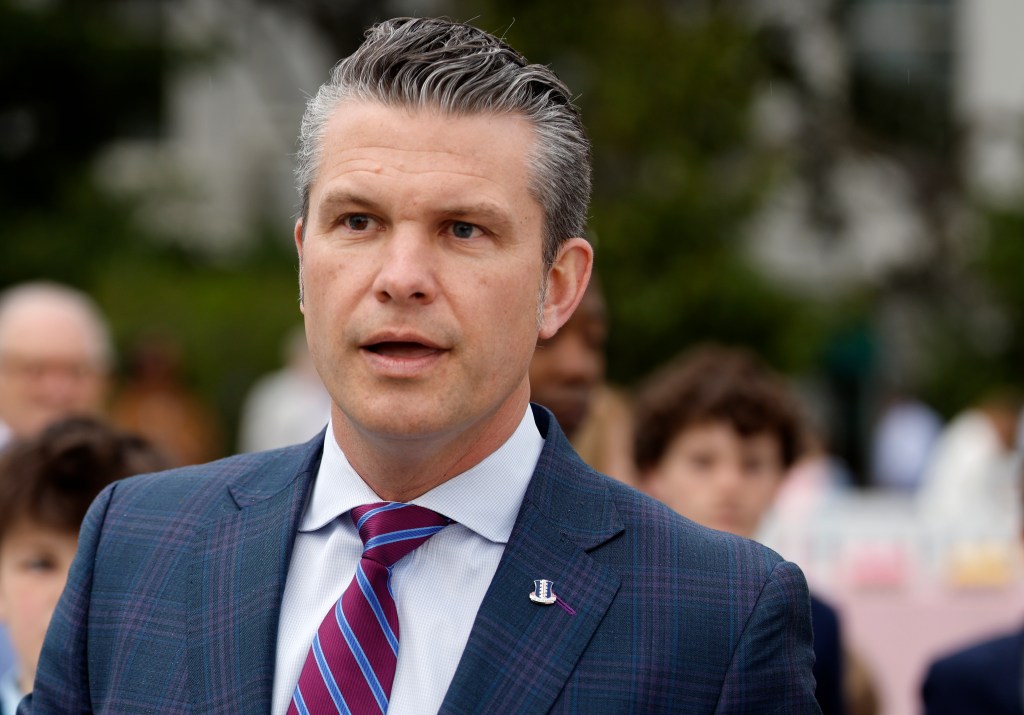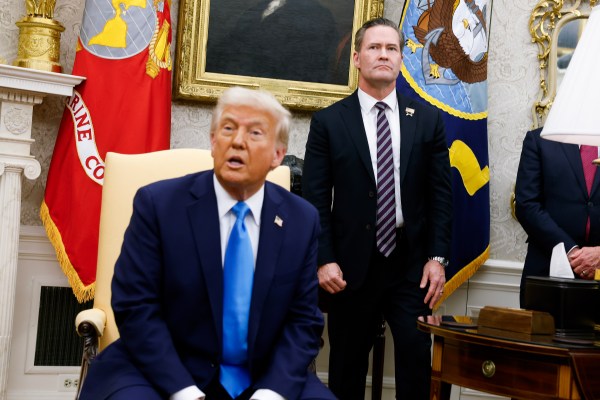On April 29, Secretary of Defense Pete Hegseth announced his intention to shutter the Pentagon’s Women, Peace, and Security (WPS) program.
Although Hegseth referred to the WPS program as a “Biden initiative,” the program was established through bipartisan congressional legislation and signed into law by President Donald Trump. Hegseth later appeared to acknowledge this in a separate tweet shared two hours after his initial post: “The woke & weak Biden Administration distorted & weaponized the straight-forward & security-focused WPS initiative launched in 2017. So—yes—we are ending the ‘woke divisive/social justice/Biden (WPS) initiative.’”
Hegseth lacks the authority to entirely eliminate the program, which he appeared to acknowledge at the end of his tweet, noting he would dismantle it to the fullest extent allowed by the law and push for its eradication in the administration’s next budget request, which Congress must approve. The law that created the program was written to apply not only to the Department of Defense (DOD), but also the Department of Homeland Security, the State Department, and the U.S. Agency for International Development. Congress tasked the DOD specifically with ensuring that various training regimens address “the importance of meaningful participation by women” and that employees receive training in “gender considerations,” particularly in regards to the protection of civilians and international human rights law.
In May 2017, Democratic Sen. Jeanne Shaheen of New Hampshire introduced the Women, Peace, and Security Act of 2017 to increase female participation in U.S. foreign affairs, particularly in overseas conflict prevention and resolution. Four senators—two Democrats and two Republicans—co-sponsored the Senate bill, including Trump’s current secretary of state, then-Florida Sen. Marco Rubio. The bill—and an identical version introduced in the House by South Dakota’s then-Rep. Kristi Noem, the current homeland security secretary—called for the president to produce a “Women, Peace, and Security Strategy” within one year of its passage, and then once every four years after, detailing the administration’s efforts “to promote the participation of women in conflict prevention and peace building.”
The Trump White House published its WPS report in June 2019. “The Trump Administration is committed to advancing women’s equality, seeking to protect the rights of women and girls, and promoting women and youth empowerment programs,” the 20-page report states. It spelled out four broad specific goals—“line of efforts”—detailing the administration’s approach to advance “women’s empowerment and equality” and ensuring their participation in conflict-related matters. The first simply stated the importance of female participation globally “in decision-making processes related to conflict and crises,” and the second focused on securing human rights for women around the world and protecting them from “violence, abuse, and exploitation.” The third discussed how the U.S. could use its various international programs to advance its women’s empowerment objectives, acknowledging “that systemic inequality faced by women and girls serves as a known driver of conflict,” and the fourth focused on recommendations the U.S. should provide to allied governments for advancing women’s empowerment and equality within their nations.
That strategy did not change radically between administrations, though the Biden White House’s strategy, published in October 2023, focused more on intersectionality—a core concept of identity politics. “Promoting intersectionality with regard to demographics such as race, disability, and sexual orientation is important to ensure opportunities for the participation of all women.”
The Biden administration report also linked questions of women’s peace and security to climate change and LGBT+ rights. The administration stressed the importance of “acknowledging the gendered dimensions of the climate crisis.” The report cited an example of an August 2023 review the government released to study the effects of climate change on women, and develop strategies to alleviate climate-related issues disproportionately affecting them. “This Strategy directly links gender inequality and climate change with advancing the WPS agenda because climate change impacts—such as extreme weather events and food and water insecurity—are threat multipliers and increase the risk of displacement, migration, and conflict, especially in regions that suffer from instability, and particularly for women and girls,” the 2023 report explained. In another example, the report noted that tools to promote women, peace, and security within the government—such as sensitivity training—can also be used to raise awareness about LGBT+ issues of inequality.
The Dispatch Fact Check has reached out to the Department of Defense for comment.
If you have a claim you would like to see us fact check, please send us an email at factcheck@thedispatch.com. If you would like to suggest a correction to this piece or any other Dispatch article, please email corrections@thedispatch.com.










Please note that we at The Dispatch hold ourselves, our work, and our commenters to a higher standard than other places on the internet. We welcome comments that foster genuine debate or discussion—including comments critical of us or our work—but responses that include ad hominem attacks on fellow Dispatch members or are intended to stoke fear and anger may be moderated.
With your membership, you only have the ability to comment on The Morning Dispatch articles. Consider upgrading to join the conversation everywhere.